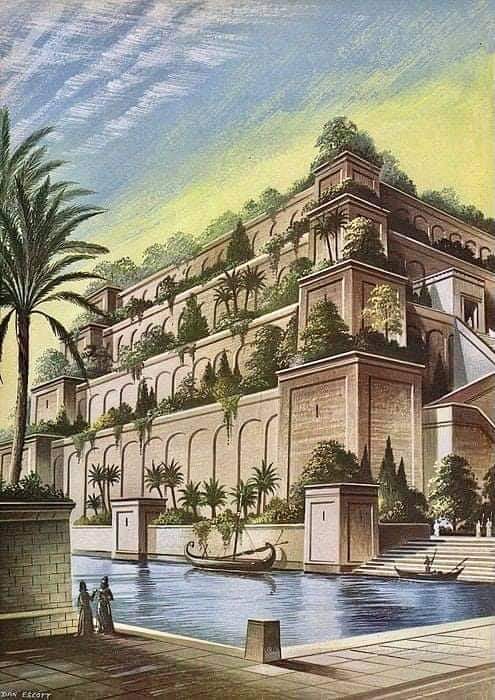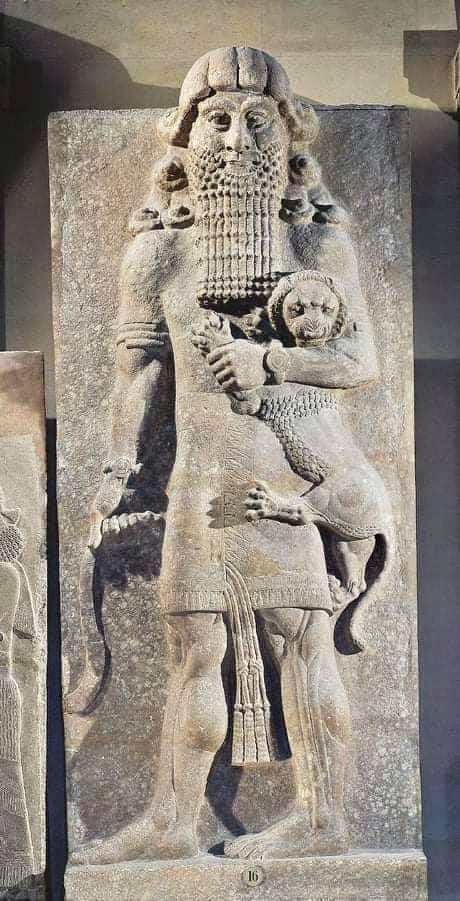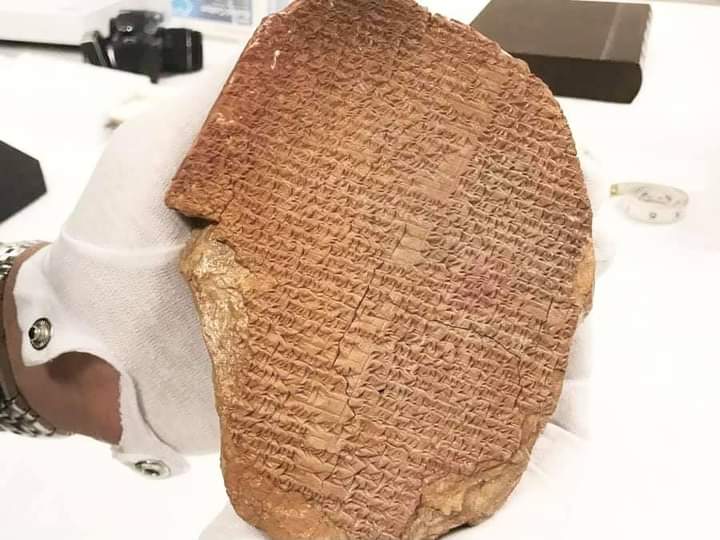LESSONS FROM THE SUMERIANS
By Ari Cabello 🌸
In 4500 BC, a civilization known as the Sumerians lived in Mesopotamia, the “Fertile Crescent.” Located between the Tigris and Euphrates rivers, they were the first in the region and had simple forms of literature, taxes, architecture, and a time measurement (sexagesimal) system. They created the Cuneiform, the earliest writing and the famous “Epic of Gilgamesh.” The people of Sumer (or the Ubaid), were also known for their textile, carpentry, and pottery skills🙂
Constantly at war with their neighboring city-state Akkad, Sumer was open to invasion from its eastern neighbor, Elam. That didn’t stop them from prospering and both cities thrived until Akkad eventually conquered Sumer in 2100 BC. The successor of both the Akkadians and Sumerians, the Amorites, was a western Semitic tribe that slowly conquered all of Mesopotamia. This entire region is known as Babylon and prospered until roughly 1600 BC. Primarily responsible for this was King Hammurabi who promoted science, law, and unity between the various city-states. After his death, Babylon mostly declined until eventually it was conquered by Alexander the Great in 331 BC.
The Sumerians were well known for their architectural prowess and built irrigation systems, pyramid-like structures, and most famously, the “Hanging Gardens of Babylon.” The cities themselves were filled with beautiful mosaics and artwork, and imposing Greek columns demonstrated their society’s sophistication 👍🏻
They were equally talented linguistically – as Cuneiform first appeared around the early 5th century, and was originally pictographic, like the Egyptian hieroglyphs. They also made the oldest code of law — the Code of Ur-Nammu — which was the inspiration of the Code of Hammurabi.
The Sumerians left an amazing legacy for modern times. They inspired people because the products of their workmanship are a part of history. Learning their way of life by diving into their roots truly adds knowledge 😊
But on the other hand, we will see a decline in their faith system. The Sumerians initially believed in one supreme being — the God of heaven. But later on, they left their roots and became naturalists (worshipped nature rather than the Creator), humanists (their gods were glorified human beings), and polytheists (worshipped so many deities) 🥺

The “Epic of Gilgamesh” which dates back to the time of Abraham reveals the Sumerians’ uncertainty of man’s future. “In this, the world’s oldest epic, the tragic hero Gilgamesh, the legendary king of the city-state Uruk, searches desperately for everlasting life for himself and his dead companion Enkidu but does not find it. Thus, the religion of the Sumerians led to hopelessness and purposelessness.” 🥺
Sadly, the Sumerians’ effort to build a great and advanced society WITHOUT God was a repetition of the mistake done at the Tower of Babel. Here we see how history repeats itself. People often have choices of beliefs that are not God-centered. And this tragically leads people and societies astray 😭
Today, bits and pieces of the Ubaid live on, and their craftsmanship, architectural mastery, and advanced social linguistics have left a mark on history. Unfortunately, not much of it remains, as their Empire essentially vanished due to the Elamite invasion. After their capital was sacked, Sumer was eventually absorbed into Amorite culture and became what we now recognize as Babylonia.
However, despite the downfall of the Sumerian civilization, we can learn valuable lessons from them. First, they made a good effort in using and developing their skills and talents. Their determination and dedication were used for important purposes. And their work shows that they are hardworking people 👍🏻
Finally, we can thank the Sumerians for their greatest contribution to civilization — THE ART OF WRITING. By inventing the Cuneiform, proper history began because history is basically a “written record of man’s past.” With this invention, we are able to appreciate history as we know it today ❤️
May we learn from their story — by using our God-given skills to glorify God and to benefit society while remaining connected to our Creator who is the source of LIFE ✝️
“For we are God’s workmanship, created in Christ Jesus to do good works, which God prepared in advance as our way of life.” Ephesians 2:10 ❤️
Sources:
“World History and Cultures in Christian Perspective,” A Beka Book
www.history.com
Tumblr
Pinterest
Read more about different stories of people, product reviews and events here on my blog and follow me on my social media accounts.
Read my column “Don’t Miss This” at The Rizal Weekly Post
IG Name: www.instagram.com/Homeschoolingiscool
FB Name: www.facebook.com/ armi.pineda
Fb page:https://www.facebook.com/Homeiskoolcom
Www.facebook.com/HomeschoolWorld
Www.facebook.com/Kawaiibeautyandlifestylecom
Www.facebook.com/Mimiworldnet
YouTube Account: https://youtube.com/channel/UCAEszY-nm4XIPSphcppyilw
TikTok Account: https://vt.tiktok.com/ZGJkEHsLh/
Blog Site: www.Homeiskool.com
Www.Mimiworld.net
Www.Kawaiibeautyandlifestyle.com
Twitter
Www.twitter.com/Armipazpineda



